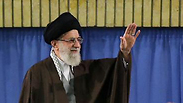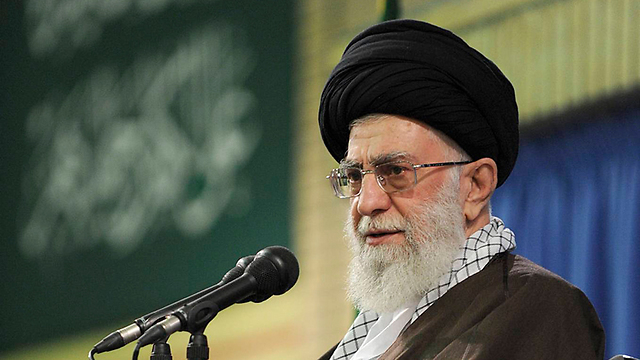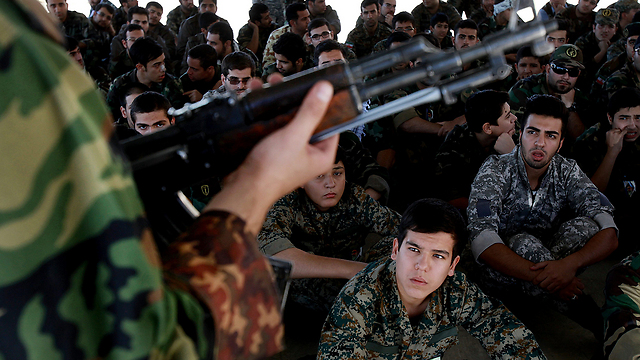
Iran slams 'myth' of nukes as Revolutionary Guard rejects deal
Khamenei says Iran's enemies 'created myth of nuclear weapons to threaten Islamic Republic'; Iranian elite Guard rejects nuclear deal's oversight.
Iran's Supreme Leader Ayatollah Ali Khamenei said on Sunday the United States had created the "myth" of nuclear weapons to portray Iran as a threat, hardening his rhetoric before nuclear negotiations resume this week.
Khamenei has supported the talks but has continued to express deep mistrust of the United States. As the highest authority in Iran, the withdrawal of his support could cause the negotiations to collapse.
"They created the myth of nuclear weapons so they could say the Islamic Republic is a source of threat. No, the source of threat is America itself," Khamenei said in comments cited by the semi-official Fars news agency.
"The other side is methodically and shamelessly threatening us militarily ... even if they did not make these overt threats, we would have to be prepared," he said in an address to military commanders.
A senior commander in Iran's Revolutionary Guard said Sunday that inspectors would be barred from military sites under any nuclear agreement with world powers.
Gen. Hossein Salami, the Guard's deputy leader, said on state TV that allowing the foreign inspection of military sites is tantamount to "selling out."
"We will respond with hot lead (bullets) to those who speak of it," Salami said. "Iran will not become a paradise for spies. We will not roll out the red carpet for the enemy."
Iran and six world powers - the US, the UK, France, Germany, China and Russia - have reached a framework agreement to curb Tehran's nuclear program in return for lifting sanctions, and hope to strike a final deal by June 30.
A fact sheet on the framework accord issued by the State Department said Iran would be required to grant the UN nuclear agency access to any "suspicious sites." Iran has questioned that and other language in the fact sheet, notably that sanctions would only be lifted after the International Atomic Energy Agency has verified Tehran's compliance. Iran's leaders have said the sanctions should be lifted on the first day of the implementation of the accord.
The fact sheet said Iran has agreed to implement the Additional Protocol to the Non-Proliferation Treaty, which would grant the IAEA expanded access to both declared and undeclared nuclear facilities.
But Salami said allowing foreign inspectors to visit a military base would amount to "occupation," and expose "military and defense secrets."
"It means humiliating a nation," Salami said on state TV. "They will not even be permitted to inspect the most normal military site in their dreams."
Iran allowed IAEA inspectors to visit the Parchin military site in 2005 as a confidence-building measure, but denied further visits, fearing espionage.
Western nations have long suspected Iran of secretly pursuing a nuclear weapons capability alongside its civilian program. Tehran denies such allegations, and insists its nuclear program is entirely peaceful.
Associated Press contributed to this report












